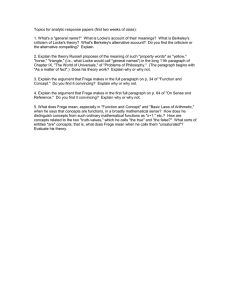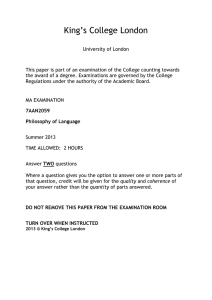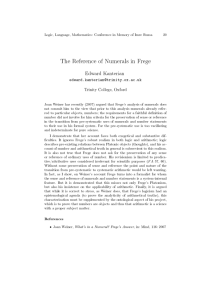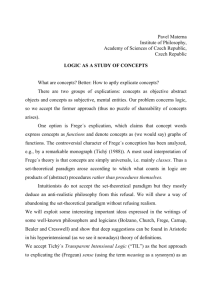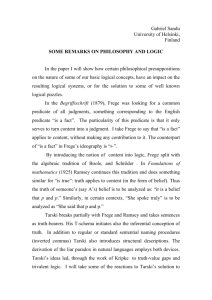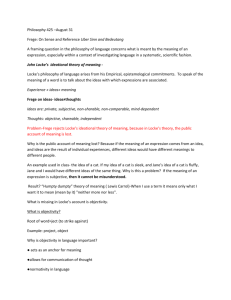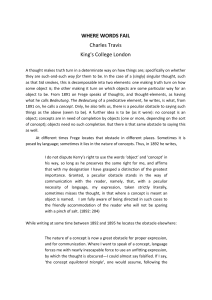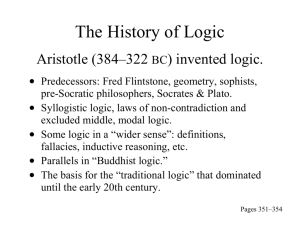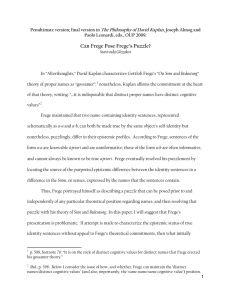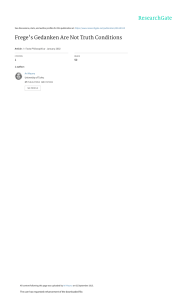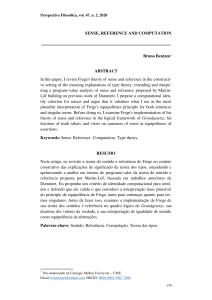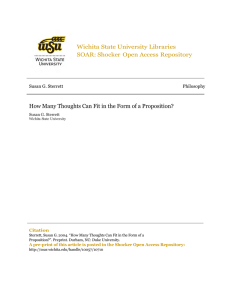24.400 Fall 2013 “Function and Concept”
advertisement
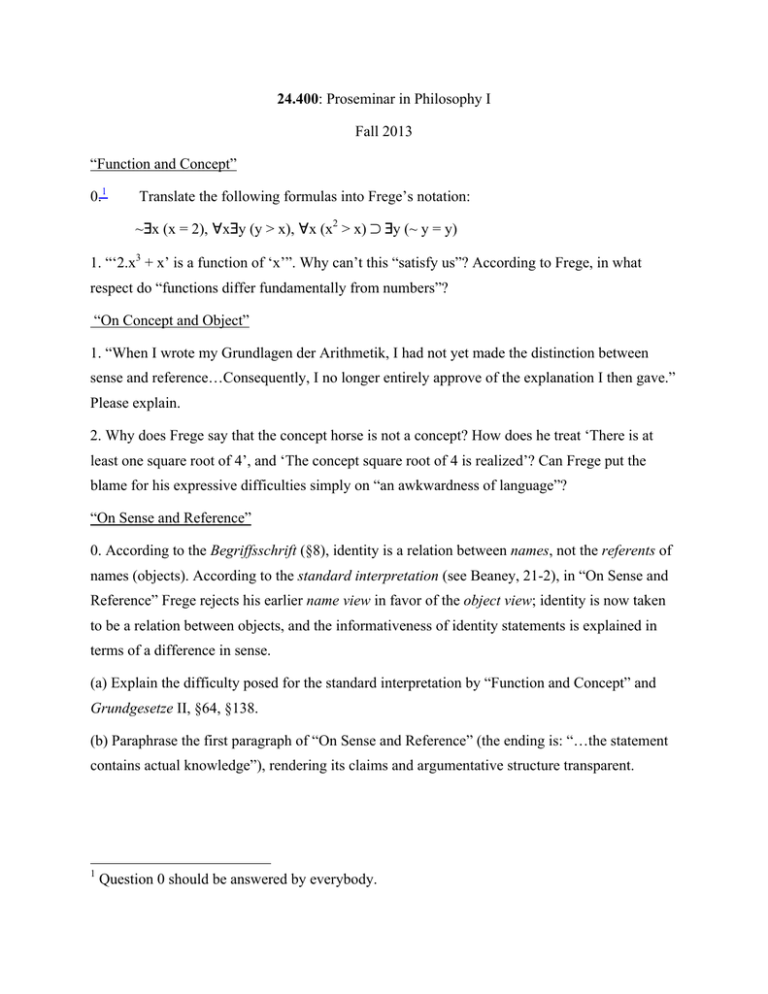
24.400: Proseminar in Philosophy I Fall 2013 “Function and Concept” 0.1 Translate the following formulas into Frege’s notation: ~∃x (x = 2), ∀x∃y (y > x), ∀x (x2 > x) ⊃ ∃y (~ y = y) 1. “‘2.x3 + x’ is a function of ‘x’”. Why can’t this “satisfy us”? According to Frege, in what respect do “functions differ fundamentally from numbers”? “On Concept and Object” 1. “When I wrote my Grundlagen der Arithmetik, I had not yet made the distinction between sense and reference…Consequently, I no longer entirely approve of the explanation I then gave.” Please explain. 2. Why does Frege say that the concept horse is not a concept? How does he treat ‘There is at least one square root of 4’, and ‘The concept square root of 4 is realized’? Can Frege put the blame for his expressive difficulties simply on “an awkwardness of language”? “On Sense and Reference” 0. According to the Begriffsschrift (§8), identity is a relation between names, not the referents of names (objects). According to the standard interpretation (see Beaney, 21-2), in “On Sense and Reference” Frege rejects his earlier name view in favor of the object view; identity is now taken to be a relation between objects, and the informativeness of identity statements is explained in terms of a difference in sense. (a) Explain the difficulty posed for the standard interpretation by “Function and Concept” and Grundgesetze II, §64, §138. (b) Paraphrase the first paragraph of “On Sense and Reference” (the ending is: “…the statement contains actual knowledge”), rendering its claims and argumentative structure transparent. 1 Question 0 should be answered by everybody. 2 1. Frege says that “the Bedeutung and sense of a sign are to be distinguished from the associated idea” (154). Explain this three-fold distinction, as it applies both to noun phrases and to declarative sentences. Why does Frege think it necessary to distinguish reference from sense, in each case? Why does he think it necessary to say that noun phrases and declarative sentences are capable of possessing both? Why does he think it necessary to distinguish sense from the associated idea? Does this latter distinction sit well with what he says in the footnote to page 153 (see also “Thought”, 332 ff.)? 2. There are contexts in which, according to Frege, proper names (as Frege uses the term) do not have their “customary Bedeutung” but some other reference. Explain what these contexts are, what this other reference is, and what arguments Frege advances for this view. What is the sense of a proper name in such a context? “Thought” 1. “In order to bring out more precisely what I want to call ‘thought’, I shall distinguish various kinds of sentences.” What are the kinds and what do they tell us about thoughts? 2. Explain Frege’s case of the wounded Dr. Gustav Lauben and the conclusions he draws from it. 3. “I am not here in the happy position of a mineralogist who shows the audience a rock-crystal: I cannot put a thought in the hands of my readers with the request that they examine it from all sides” (p333). What is the challenge here and how does Frege address it? MIT OpenCourseWare http://ocw.mit.edu 24.400 Proseminar in Philosophy I Fall 2013 For information about citing these materials or our Terms of Use, visit: http://ocw.mit.edu/terms.
